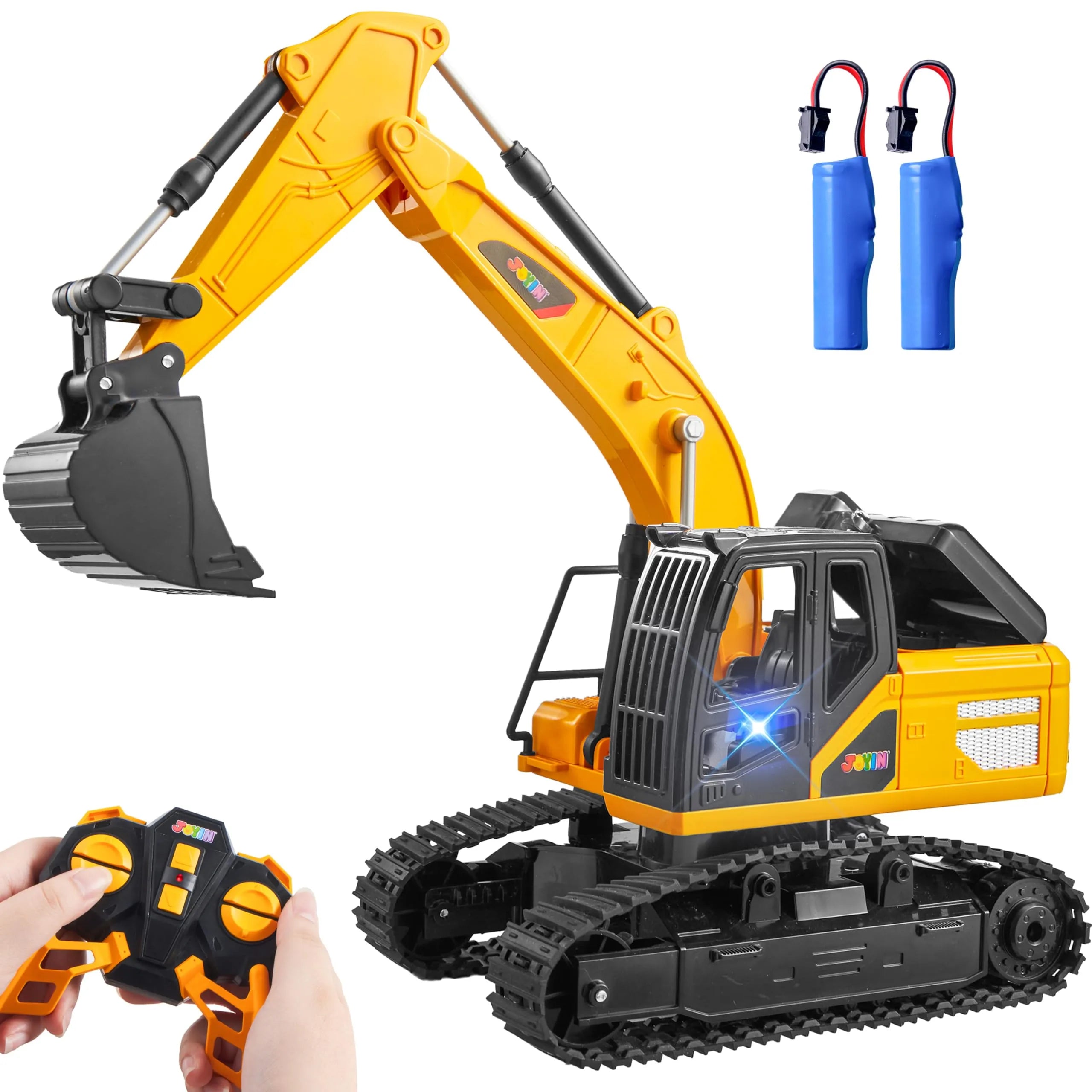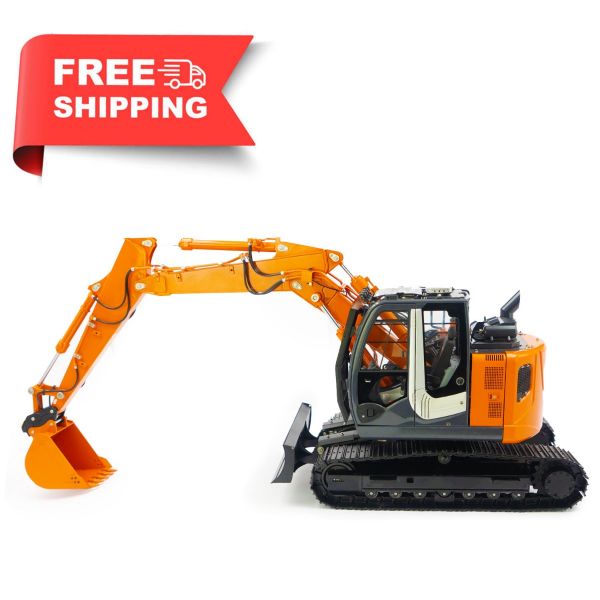Discover the Importance of Excavator in Modern Building Projects
Excavators are important devices in modern construction tasks. Their versatility enables them to perform a large range of tasks, from digging and grading to demolition and website prep work. Advanced attributes, such as hydraulic attachments and general practitioners, boost their abilities and performance on work sites. As the sector advances, the value of excavators expands even a lot more. Comprehending their duty can disclose insights into the future of building and construction techniques. What exists in advance for these machines?
The Convenience of Excavators in Numerous Projects
Excavators are often associated with large-scale construction tasks, their versatility permits them to be utilized in a broad array of applications, from residential landscape design to utility maintenance. In city setups, excavators can navigate tight spaces to dig structures for homes or install drainage systems. Their capacity to do delicate tasks makes them optimal for landscaping projects, where they can excavate for fish ponds or plant trees. Additionally, excavators play a vital function in energy upkeep, effectively digging trenches for pipelines or wires without disrupting bordering areas. In farming applications, they help in land clearing and dirt prep work. Additionally, their adaptability enables them to be geared up with various attachments, improving their performance throughout different jobs. This complex nature of excavators not just improves different building processes but also demonstrates their important duty in modern facilities advancement and upkeep.
Key Attributes and Kinds Of Excavators
The conversation on crucial attributes and sorts of excavators highlights the crucial characteristics that make these machines important in building and construction. Numerous excavator types, each developed for details tasks, demonstrate their convenience and effectiveness throughout different applications. rc excavator. Comprehending these features and classifications is vital for maximizing their usage in modern-day construction tasks
Excavator Keys In Introduction
Excavators play a pivotal role in contemporary construction, providing flexibility and efficiency throughout different jobs. These heavy machinery units can be found in several kinds, each customized for specific applications. The most typical kinds include crawler excavators, known for their stability on unequal terrain, and wheeled excavators, which supply higher mobility on smooth surfaces. Mini excavators are preferred for small tasks and limited areas, while long-reach excavators are made for deep digging. Furthermore, there are customized excavators, such as hydraulic excavators, which enhance power and precision. Each type includes special abilities, making them crucial for jobs ranging from digging and grading to demolition and product handling. Recognizing these variants enables construction professionals to choose the ideal excavator for their job needs.
Trick Includes Explained
Comprehending the essential features of excavators enhances their effective application in construction jobs. Excavators are defined by their powerful hydraulic systems, which provide the essential force for excavating, training, and moving materials. Their expressed arms permit a wide variety of activity, assisting in accurate procedures in confined areas. Additionally, the variety of attachments, such as containers, grapples, and augers, expands their adaptability to meet different project demands. The dimension and weight of excavators additionally add to their security and ability to move on various surfaces. Furthermore, advancements in innovation have led to the combination of GPS and automation, boosting precision and efficiency in excavation jobs. These features jointly position excavators as essential devices in modern building.
Applications in Construction
Changing building and construction sites, excavators play a critical role across different applications, varying from property structure jobs to large-scale framework developments. These versatile equipments are geared up for jobs such as digging structures, trenching for energies, and website grading. Various kinds of excavators, consisting of crawler, wheeled, and mini excavators, give particular benefits customized to the project demands. Spider excavators master rough terrains, while wheeled excavators provide flexibility on paved surface areas. Mini excavators are suitable for constrained rooms, making them preferred in city setups. The performance and power of excavators significantly accelerate building procedures, making sure timely project completion. Their versatility better boosts their significance, enabling building groups to take on a diverse array of obstacles properly.
Enhancing Performance and Performance on Task Sites
Making the most of efficiency and productivity on work websites is a critical goal in modern-day building and construction. Excavators play a pivotal duty in accomplishing this goal by improving various jobs. Their ability to execute numerous features-- such as excavating, lifting, and grading-- reduces the demand for additional devices, thereby conserving time and resources.Moreover, excavators improve process by enabling for faster completion of projects. With innovative functions like hydraulic add-ons and GPS technology, they can implement precise operations that minimize mistakes and revamp. This precision not just improves the top quality of work yet additionally enhances material usage, adding to cost savings.The adaptability of excavators permits them to adjust to different site conditions, making certain that projects proceed efficiently no matter challenges. By incorporating excavators right into construction procedures, teams can significantly enhance their general performance, resulting in prompt job conclusion and raised earnings.
Security Advantages of Making Use Of Excavators
Excavators considerably boost safety and security on construction websites via improved operator presence and lowered manual work dangers. By supplying drivers with a clear view of their surroundings, excavators aid to avoid injuries and mishaps. Furthermore, the equipment reduces the demand for employees to participate in harmful manual jobs, even more advertising a much safer job setting.
Boosted Operator Visibility
Although building and construction sites can be disorderly and full of possible threats, boosted operator visibility plays a crucial duty in making sure security when utilizing excavators. Modern excavators are created with large, unobstructed home windows and tactically put mirrors, enabling operators to preserve a clear view of their environments (rc excavator). This improved exposure is crucial for detecting pedestrians, other equipment, and different barriers, considerably reducing the risk of accidents. In addition, lots of excavators incorporate sophisticated innovation, such as sensors and cams, to offer drivers with extra point of views, even more boosting awareness. The capability to see more plainly not just aids in efficient procedure however additionally promotes a more secure workplace, making it much easier for drivers to navigate intricate building and construction websites without jeopardizing security requirements
Decreased Manual Work Threats
When manual labor is minimized through using excavators, various security benefits arise, considerably enhancing the health of building and construction workers. Excavators minimize the physical stress associated with heavy lifting and recurring jobs, effectively decreasing the danger of bone and joint injuries. By automating processes such as excavating, grading, and relocating products, they permit employees to keep a more secure range from potential dangers. Furthermore, excavators are furnished with innovative security attributes, such as rollover defense systems and boosted driver ergonomics, which further safeguard personnel on site. The result is a substantial reduction in workplace mishaps and injuries, resulting in boosted performance and morale amongst construction groups. Ultimately, the fostering of excavators contributes to a more secure and a lot dig this more efficient building and construction atmosphere.
Excavators in Earthmoving and Website Preparation
In contemporary building, a significant section of earthmoving and website prep work tasks relies on the effectiveness and flexibility of excavators. These makers are developed to manage different soil types and surface, making them vital for grading, digging, and trenching tasks. Their hydraulic arms can be furnished with various attachments, such as augers and buckets, allowing operators to tailor their method based on certain job requirements.Excavators succeed at moving large quantities of earth swiftly and effectively, which accelerates the overall construction timeline. They can browse limited areas and challenging websites where standard equipment may struggle, improving efficiency. Furthermore, the accuracy of excavators guarantees that website preparation follows strict specifications, reducing the risk of mistakes that might lead to expensive rework.
The Role of Excavators in Demolition Tasks
Excavators play a crucial duty in demolition jobs, as they possess the power and dexterity required to take apart frameworks effectively. Furnished with various accessories such as hydraulic breakers, shears, and grapples, these equipments can adapt to different demolition needs, whether for small buildings or huge commercial websites. Their versatility enables operators to deal with complex jobs while preserving safety and precision.In addition to their demolition capabilities, excavators assist in particles elimination, making sure that work websites remain risk-free and organized. By damaging down structures into manageable items, they enable for structured clearing and recycling of products, lining up with modern sustainability efforts.Moreover, excavators can access tight spaces and browse uneven terrain, making them indispensable in metropolitan demolition projects. In general, their durable layout and multifunctionality make excavators a vital asset in the redirected here demolition stage of building and construction, contributing substantially to task timelines and effectiveness.


Future Fads in Excavator Modern Technology and Use
As the building and construction market develops, developments in excavator innovation are poised to change their use and efficiency markedly. One significant trend is the assimilation of automation and expert system, allowing excavators to operate with marginal human intervention. This shift will certainly improve accuracy in tasks such as grading and trenching, lowering human mistake and raising productivity.Additionally, the increase of hybrid and electrical excavators is shaping a more lasting building atmosphere, reducing carbon exhausts and fuel prices. Improved telematics systems are additionally emerging, enabling real-time surveillance of maker performance and maintenance needs, which can cause better functional effectiveness and longer equipment lifespan.Moreover, improvements in accessory modern technology are broadening the flexibility of excavators, permitting them to do a more comprehensive variety of jobs. The combination of these fads shows a future where excavators are smarter, greener, and more adaptable, inevitably reshaping building and construction job characteristics.
Often Asked Concerns
Just How Do Excavators Contrast to Other Construction Equipment?
Excavators, defined by their flexibility and power, master digging and earthmoving contrasted to various other machinery. Their ability to do numerous jobs, consisting of training and demolition, makes them important in building tasks, improving total performance.

What Is the Ordinary Life-span of an Excavator?
The average life expectancy of an excavator generally varies from 7,000 to 10,000 operating hours, depending upon maintenance, usage conditions, and design. Correct care can prolong this lifespan, making certain peak performance throughout its operational years.
Exactly How Are Excavators Kept for Optimum Performance?
Excavators call for normal upkeep for peak performance, consisting of regular examinations, liquid checks, filter substitutes, and prompt fixings. Executing a preventative maintenance schedule helps lengthen their life-span and guarantees effective operation in various construction settings.
What Are the Expenses Connected With Acquiring an excavator vs. leasing?
The prices related to leasing versus purchasing an excavator differ significantly. Renting out deals lower upfront expenditures however can build up in time, while buying needs a significant initial investment, but provides lasting financial savings and possession possession advantages.
What Training Is Needed to Run an Excavator?
Operating an excavator needs specialized training, usually consisting of safety protocols, maker operation techniques, and environmental awareness. Qualification programs frequently mandate practical experience, allowing operators to manage numerous tasks efficiently while making certain conformity with industry regulations. The most typical types consist of spider excavators, understood for their stability on unequal terrain, and rolled excavators, which provide better wheelchair on smooth surface areas. Mini excavators are preferred for limited areas and small-scale jobs, site web while long-reach excavators are created for deep digging. In addition, there are specialized excavators, such as hydraulic excavators, which enhance power and precision. Various kinds of excavators, consisting of crawler, wheeled, and mini excavators, give particular benefits customized to the task demands. Crawler excavators stand out in harsh terrains, while rolled excavators offer wheelchair on smooth surface areas.
Comments on “Improving Safety on Job Sites with a rc excavator”